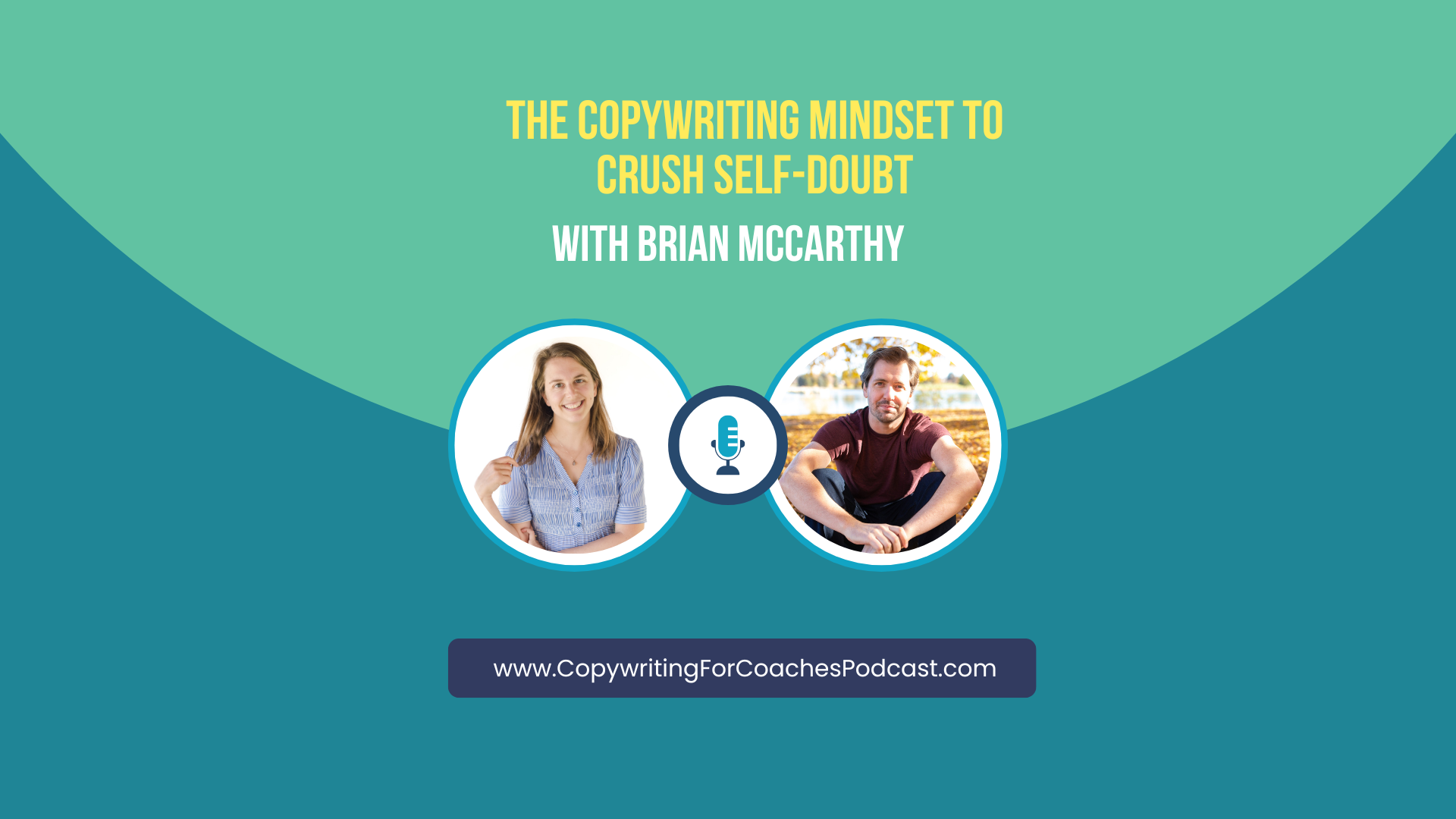Here’s why your copywriting might not be working, and spoiler alert: it’s not because of your writing skills. You don’t need to take another course or push through “writer’s block.” It goes way deeper than imposter syndrome stealing your confidence. The real culprit? It’s likely your money story.
I didn’t expect it either, but after working closely with my clients, this pattern kept emerging:
- You’re undercharging even when you’re partnering with well-known brands.
- You hesitate to say what you really want, or can’t quite find the right words to articulate it.
- Writing feels like a struggle because your mind is constantly tangled up in financial stress.
- You’re sitting on finished copy but not publishing it because it doesn’t feel good enough or aligned.
Here’s what’s happening:
Your money worries are clouding your ability to tap into your true voice.
You’re so caught up in the fear of what might happen…
What if my launch flops? What if only one person signs up? What if I don’t hit my income goals?
…that it’s blocking your creativity and clarity.
And here’s the kicker: we all know our self-worth shouldn’t be tied to money, but in reality, it often still is.
Some people just need a confidence boost to kick imposter syndrome to the curb. For others, it runs deeper.
What might really be standing between you and the copy that converts (and the sales that follow) is your Money Story.
That’s why today, we’re talking with Katherine Pomerantz, an actress-turned-accountant who’s fused her creative background with financial expertise to help business owners master the language of money. Her work has been featured in VICE Media, Discover Card, The Penny Hoarder, and the Stacking Benjamins Podcast. She’s here to share how to rewrite your money story to support the big goals you have for your business.
In this post, we’re diving into what a money story is, how it holds you back, and—most importantly—how to rewrite it. Let’s get clear on the numbers that support the life you want and explore how to feel safe at higher levels of success. It’s time to shatter those limiting beliefs and create the financial freedom you deserve!
What Is A Money Story?
Your money story is the internal narrative that shapes your relationship with money. It’s built from your life experiences, upbringing, and the financial events tied to significant moments. Think about it—every big life event, from getting married to facing a health crisis, comes with financial implications. These experiences impact how we think, feel, and act around money.
But here’s the thing: your money story isn’t just about your past. It’s about the future you’re building, too. When you understand the emotions behind your money story, you can start aligning your beliefs with your financial goals. And that’s where the magic happens. When you’re in alignment, you unlock new levels of success, visibility, and impact in your business.
For some, the story includes spending $30,000 on a dream wedding. For others, it’s the struggle of unexpected medical bills or layoffs. These stories bring emotions, often trauma, that complicate our relationship with money. Sometimes it’s subtle—a reaction to seeing someone flaunt wealth or feeling resentment towards financial privilege. Over time, these thoughts shape your beliefs about money.
But your money story isn’t just internal. It’s reflected in your actions and decisions. That’s why I focus on aligning your internal beliefs with your external financial goals. It’s about creating the money story you want to live. When your thoughts, emotions, and actions align, real financial change happens.
Don’t let money blocks be the reason you don’t make the impact you know you’re meant to make in the world. The world needs what you have to offer.
How Is Our Money Story Getting In The Way of Effective Copywriting (and making a ton of new sales as a result!)
As business owners, success often means more revenue, sales, and income. But many of us unknowingly place limits on how much success we allow. Author Dr. Robert Holden introduces the idea of a success contract—the internal belief that we must meet certain conditions before we deserve success.
This idea ties directly into your money story. We often delay or push away financial opportunities because we feel unworthy. And here’s the mind-blowing part: there’s an amount of money and success that feels “safe.” Going beyond it can trigger a fear of losing the respect or approval of those we love. Whether it’s a family member or a close community, we fear being judged for “forgetting our roots” or being “too successful.”
For example, Katherine worked with a client whose mother would sarcastically say, “Here comes the fancy pants family!” whenever they visited. Those comments stuck with her. The fear of losing her mother’s respect was unconsciously limiting her financial success. And this happens to many of us—whether it’s a parent or someone else.
There’s an amount of money that feels “safe” to you.
Beyond that amount, you may unconsciously believe you’ll lose respect or even love from people who matter. You may fear that by becoming more successful, you’ll lose your roots or the acceptance of your community. This fear triggers a trauma response, making you feel unsafe. Your body reacts, and suddenly, the idea of more success feels threatening. It’s not just about the money—it’s about the emotional need for belonging.
Here’s the good news: recognizing these success thresholds in your money story is the first step to breaking through them. To move forward, you need to calm your nervous system and do the energetic work to feel safe at new levels of success.
When it comes to your money story, it’s not just about the way you think about money—it’s about how you feel. You might be ready to publish that content, launch that project, or take a big step forward, but then you get stuck. That feeling of being stuck is your trauma response kicking in.
Our bodies respond to fear with four reactions: fight, flight, freeze, or fawn.
Let’s break it down:
- Fight: You feel angry or frustrated, overwork the details, or convince yourself it’s not good enough yet.
- Flight: You get busy with other things, distracting yourself from what really needs to be done.
- Freeze: You stay stuck in inaction, leaving your big ideas and plans in draft mode forever.
- Fawn: You tone things down, people-please, and avoid making waves because you need approval.
These responses show up in our money story more than we realize. We delay success because we feel unsafe. Maybe you’re afraid of stepping into a new level of visibility or financial success. It’s natural—our deep human need for love and belonging can make success feel risky.
We often get stuck with our copy not because we don’t know how to write, but because something deeper is going on.
When you’re staring at your copy, ready to hit publish but freezing up, that’s a sign. Fight, flight, freeze, or fawn kicks in, and suddenly you’re overthinking, reworking, or avoiding the task altogether.
I see this often with clients who come to me after trying templates, DIY solutions, or even AI tools like ChatGPT. They’ve tried, but it’s not working. Why? Because their money story is triggering fight, flight, freeze, or fawn responses. When we work together, I listen deeply. I hold space for those emotions and ask the right questions to help you understand why you don’t feel safe putting yourself out there. Together, we break through those blocks to align with the success you truly want. I support you in exploring what’s really going on behind the scenes.
Maybe it’s fear of being seen, or maybe it’s people-pleasing sneaking in, causing you to tone down your message. That’s where I come in. We dive deeper so you can stand confidently in your visibility and align what you’re saying with who you truly are—without feeling like an imposter.
Because, let’s be real: knowing what to say is one thing, but being able to hold yourself when you put it out there? That’s a whole other skill. And it’s valuable to practice that visibility safely with a trusted copywriter first, so that you can then feel confident doing it more publicly.
The reason people hire a copywriter…they think it’s about words, initially. But it’s about so much more than the words we put on the page. There’s so much more deep work we do in our session together, so that you can stand in that visibility once the words are out there because it aligns with who you truly are. That is how you stand confidently and not feel like an imposter.
Two Practical Steps To Shift Your Money Story And Meet Your Financial Goals
Step 1: To fully step into the life you want, the first thing you need is a specific dollar amount tied to your vision.
This number isn’t just about your bills—it’s about creating a lifestyle that supports your goals. For example, Katherine recently had her second child. She realized she needed more support. So she doubled her housekeeper’s hours and found a daycare she loves for both of her kids. These decisions come with a specific dollar amount attached to them.
Your money story is crucial here. Many of us have a threshold for how much money feels “safe.” When we think about earning more, we start to feel uncomfortable. This is where your money story comes into play—those internal beliefs that tell you who you are and what you deserve.
Let’s break it down. First, figure out how much you need for your ideal life. This isn’t just about covering bills; it includes things that help you show up fully. That could include a regular massage to relieve stress or hiring help to free up your time. Be specific. Instead of saying, “I want to earn $100,000,” figure out exactly how much you need—for example, $118,000 or whatever fits your vision.
Step 2: Once you know the amount, attach a story to it.
This is the lifestyle you want, and that number makes it possible. This isn’t just a nice-to-have; it’s a non-negotiable. Then, start to notice the thoughts and emotions tied to that number. Are you hesitating because your money story is telling you it’s not safe to earn or spend that much?
When these thoughts come up, slow down. Ask yourself, “Is this thought even true?” Start rethinking your money story. Shift your focus to the return on investment (ROI). If hiring a VA saves you hours, think about what you can accomplish with that time. How will it increase your income?
For example, another client of Katherine’s had a money story from her family about frugality and about not wasting money, so she never allowed herself that before. Now she’s in debt, so asking to spend more seems crazy. For her, “who are you to have enough” didn’t come from the income amount. That didn’t trigger her. But the spending amount that comes from reaching that income goal that all of a sudden became way too scary.
Have these thoughts plagued your mind, too?
“Who am I to receive that kind of help?”
“It’s not safe to spend this money. I’m wasting it.”
“I could keep working harder. I could keep doing more”
We need to do something different to get different results.
Slow Down To Speed Up
This practice isn’t about rushing or pushing harder. It’s about slowing down to speed up. You need to do the inner work to align your money story with your goals. When you shift your mindset, your actions will follow, and the results will come faster.
We gave her some very specific success metrics to know that the ROI was there for her. The idea is to increase the spending in order to increase the cash flow. By having cash flow out, she needs to have an increased cash flow in. By actually breaking it down and putting some specific numbers on it, all of a sudden, I’m not “wasting” – I am investing. And it’s now possible. The story is different.
By understanding and rewriting your money story, you’ll feel empowered to take consistent action toward your specific financial goals.
How do emotional triggers tied to our money story influence marketing psychology and the effectiveness of sales copy?
Slowing down can be hard, but it’s essential for growth. When we pause, we give ourselves space to question our money story and uncover the hidden beliefs holding us back. Often, we move fast to avoid uncomfortable feelings. We push for more success, more visibility, and more income, but at what cost?
I call it “slowing down to speed up.” When you slow down, you can ask yourself critical questions: Is this thought true? Why do I believe this? This reflective process helps us rewrite our money story, making it possible to show up confidently and consistently.
This practice is not one-and-done. It’s a lifestyle of realigning your actions with your goals. Every time you slow down, you learn more about your money story, giving yourself the power to make lasting changes.
Remember, this isn’t just about receiving feedback or visibility—it’s about receiving money and success. Sometimes we think we want more, but our money story is holding us back. Slowing down helps us identify those limits and break through them.
So, before rushing forward, give yourself permission to pause. Dig into your money story. What beliefs are shaping your actions? Once you identify them, you can rewrite them and step fully into your success.
Connect With Our Guest, Katherine Pomerantz
Katherine, actress turned accountant, has capitalized on her artistic background to create the Money Storyteller MethodTM – a mindset and accounting framework that helps business owners master the creative language of money to map out and easily achieve ambitious goals. She believes every idea has the ability to change the world if given the right financial support. She leads an accounting firm & financial education company, and her expertise has been featured by VICE Media, Discover Card, The Penny Hoarder, and the Stacking Benjamins Podcast. She loves yoga, walking dogs, and throwing rad birthday parties.
The unmeasured stress of worrying about messy money (not to mention the avoidable misuse of time, energy, and often – more money – in cleaning up messes) is a waste of business and personal resources.
Katherine doesn’t just design and implement efficient accounting systems to clean up mess, she helps business leaders get to the root cause of their messy habits so they can fix them for good.




